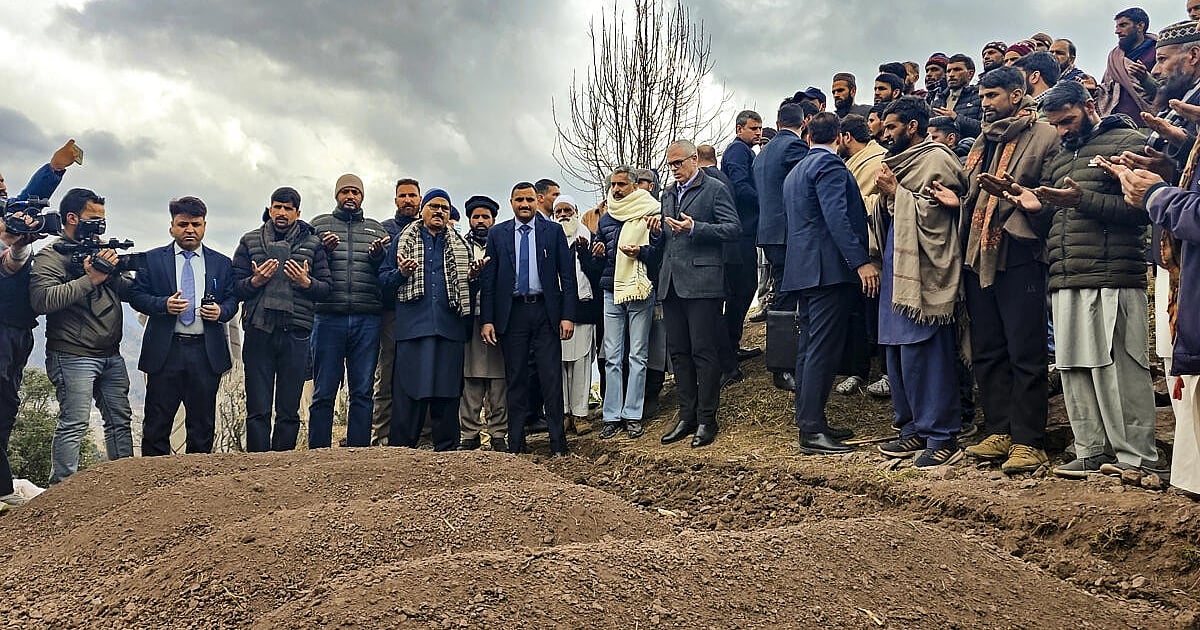 |
|
The recent events in Rajouri, a village in the Indian state of Jammu and Kashmir (J&K), have sparked significant concern and led to the imposition of a containment zone. The trigger for this action was a series of unexplained deaths within the village, prompting authorities to take swift measures to prevent further potential spread of whatever underlying cause may be responsible. The situation underscores the challenges faced by authorities in managing public health crises, especially in regions with limited access to advanced medical facilities and infrastructure. The swift declaration of a containment zone highlights the seriousness with which the local administration views this unfolding situation. The lack of immediate clarity regarding the cause of the deaths underlines the need for thorough investigation and potentially broader public health measures. The need for accurate information dissemination is paramount to avoid the spread of misinformation and panic.
The decision to declare the village a containment zone was made under Section 163 of the Bharatiya Nagarik Suraksha Sanhita (BNSS), a relatively new piece of legislation focusing on citizen safety. This section empowers magistrates to issue written orders in emergency situations to address immediate threats to public safety or to rectify hazardous conditions. The utilization of this section highlights the perceived urgency and potential risks associated with the unexplained deaths. The precise details surrounding the use of Section 163 in this instance require further investigation to understand the justification for its application and the specific measures undertaken within the containment zone. Transparency in this process is crucial to maintain public trust and to ensure that such powers are used judiciously and appropriately. The implementation of Section 163 also necessitates a clear exit strategy, ensuring that the containment zone is lifted once the threat has subsided and the situation is under control.
The situation in Rajouri raises several crucial questions. The most pressing is, of course, determining the cause of these unexplained deaths. Comprehensive investigations are needed, including potential toxicological analyses, epidemiological studies to identify any common factors among the deceased, and careful examination of available medical records. The involvement of specialized health professionals and forensic experts is essential to provide accurate diagnoses and ensure proper procedures are followed. In addition, the investigation needs to assess the effectiveness of the containment strategy in containing any potential spread of illness or identifying the root cause. Beyond the immediate investigation, this incident highlights broader systemic issues that may exist, such as access to quality healthcare in rural areas and the preparedness of local governments to deal with unexpected health crises. The efficient coordination of multiple agencies is crucial during such events, from local health officials to state-level authorities and even national-level experts, if needed. The aftermath will also involve ensuring proper support for the affected families and addressing any related social and economic consequences.
The longer-term implications of the Rajouri situation extend beyond the immediate crisis. The incident underscores the importance of robust public health surveillance systems, particularly in remote areas. Early detection mechanisms and effective communication channels are vital in preventing the escalation of such situations. Investing in improved infrastructure, including better healthcare facilities and improved access to advanced medical technologies, is essential to bolster the resilience of rural communities. Regular training and drills for local officials in managing public health emergencies can also enhance preparedness and response times. Furthermore, the incident should serve as a case study for improving national-level protocols for managing unexplained death clusters and ensuring transparent, timely, and accurate information is provided to the public. Ultimately, the Rajouri case will serve as a valuable learning experience, emphasizing the need for proactive measures and enhanced public health infrastructure to ensure effective response to similar events in the future.
Source: Unexplained deaths: J&K's Rajouri village declared containment zone
